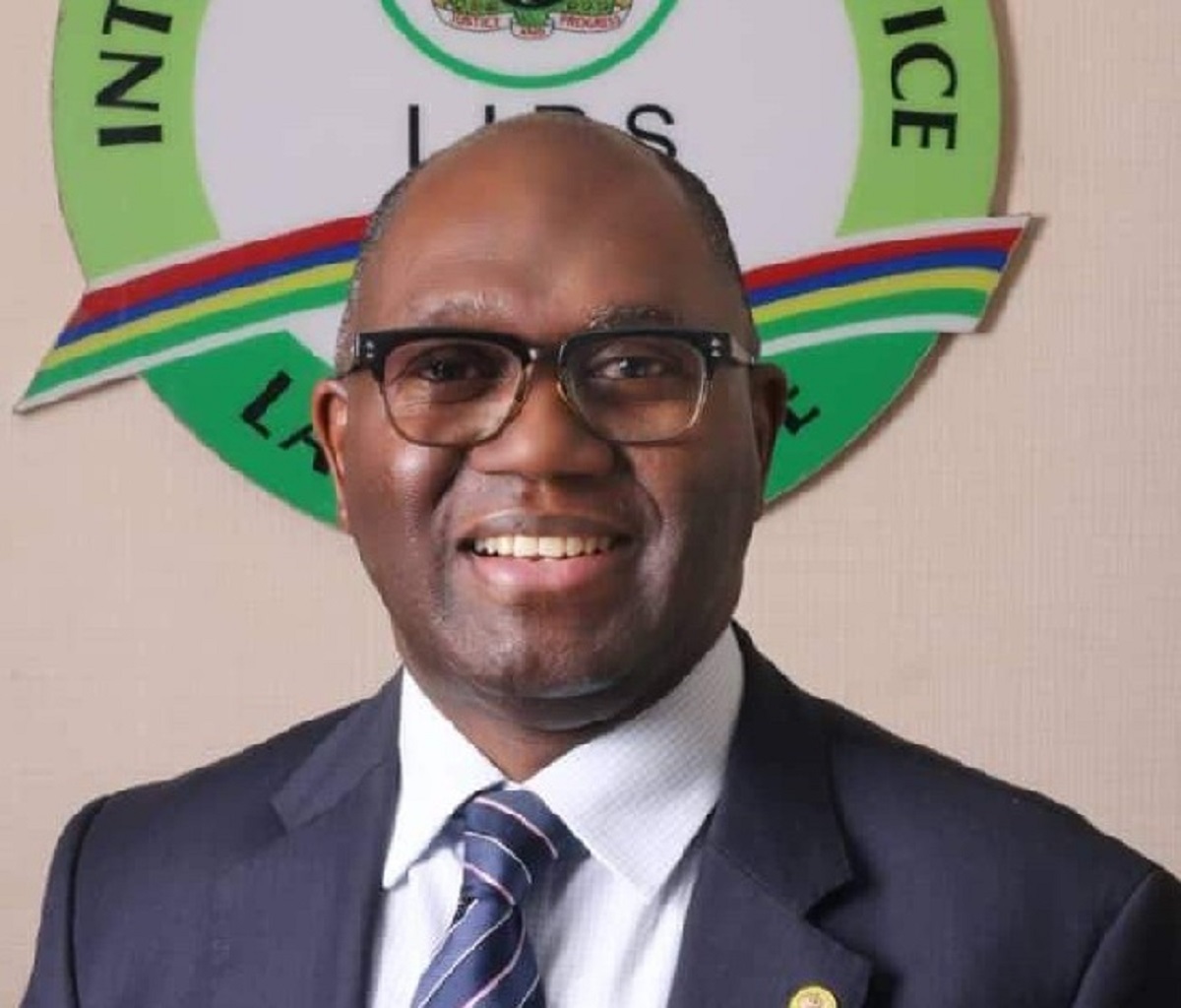General News
Lagos State Sets Strict Deadline for 2024 Tax Returns Filing

Lagos State Internal Revenue Service (LIRS) has issued a reminder to all employers in Lagos State to fulfill their statutory obligation to file annual tax returns for the 2024 financial year on or before January 31, 2025.

This requirement is in line with the Personal Income Tax Act (PITA) Cap P8 LFN 2004 (as amended).
In an official statement, Dr. Ayodele Subair, the executive chairman of LIRS, emphasized that meeting this deadline is a legal obligation.
He warned that failure to comply will result in statutory sanctions, including penalties, as prescribed by law.
Section 81 of PITA mandates employers to submit comprehensive annual returns detailing all emoluments paid to employees, including taxes deducted and remitted to relevant tax authorities.
These returns must be filed no later than January 31 each year and cover the income and taxes paid during the preceding year (2024).
Dr. Subair stressed, “Employers must prioritize the timely filing of their annual income tax returns to avoid penalties. Submitting returns on or before the deadline ensures compliance with the law and supports accurate revenue tracking, which is essential for Lagos State’s fiscal planning and sustainability.”
To simplify the process, LIRS has transitioned to a fully digital filing system. Employers must file their annual tax returns exclusively through the LIRS e-Tax portal.
Manual submissions are no longer accepted. Mr. Subair described the e-Tax platform as secure, user-friendly, and designed to provide employers with a convenient way to manage their tax obligations.
Employers are reminded to include the Payer ID of all employees in their returns. Employees without a Taxpayer ID are advised to generate one immediately on the e-Tax platform to prevent disruptions during the filing process.
To assist employers, LIRS has deployed staff across its offices to provide guidance on using the e-Tax portal and addressing related concerns.
Employers are encouraged to act promptly to meet the deadline and ensure compliance with tax laws.
General News
Nigeria Approves $500m for AfDB’s Trust Fund Replenishment over Next 15 Years

Nigeria has approved a fresh $500 million replenishment of the Nigeria Trust Fund (NTF) at the African Development Bank (AfDB), extending the facility for another 15 years.

President of the AfDB, Dr. Akinwumi Adesina, announced this during his opening remarks at the ongoing AfDB Annual Meetings in Abidjan as he expressed deep appreciation to President Bola Ahmed Tinubu and Vice President Kashim Shettima for their continued support.
“To President Bola Ahmed Tinubu and to Vice President Kashim Shettima, for your support over the past two years, I am profoundly grateful. Thank you for graciously approving the replenishment of the Nigeria Trust Fund for another 15 years for $500 million.”
The Nigeria Trust Fund (NTF) was set up in 1976 through an agreement between the Nigerian government and the African Development Bank Group. It’s a revolving fund that sustains itself over time and is designed to support the development of low-income African countries in need of concessional financing.
The fund can be used in a number of ways—either to co-finance projects alongside the African Development Bank and the African Development Fund (ADF) or to finance projects independently. It supports both public and private sector initiatives and can also be used to top up funding for ongoing Bank Group-backed projects.
Unlike the ADF, which allocates funds to countries, NTF resources are tied to specific projects. This allows for more flexible, needs-based support where it’s most effective.
General News
Harmonised Tax Bills Ready, May Get NASS Approval Today

The National Assembly has hinted that it may consider passing the harmonised tax reform bills by Tuesday, following a successful review of the troubling clauses in the proposed legislation.

This was disclosed by the Chairman of the House Committee on Finance, James Faleke, via his official X account on Sunday. Faleke is the leader of the House delegation for the bills harmonisation exercise.
He tweeted, “The conference committee set up by the House and the Senate on the Tax Reform Bills has successfully concluded its work. The joint committees thoroughly reviewed all sections and addressed the grey areas of the four bills, examining each clause strategically and resolving contentious issues.
“After an intensive deliberation that stretched through Thursday night, all day Friday, and into the early hours of Saturday, I am pleased to report that the bills are now ready for presentation to both the House and the Senate for final passage.
“I would like to especially appreciate the Senate conference committee, ably led by the Chairman of the Senate Committee on Finance, the Distinguished Senator Sani Musa, as well as all members of the Senate Conference Committee.
“I also extend heartfelt gratitude to my colleagues on the House Conference Committee, which I had the honour to lead, for their unwavering commitment to the Nigerian people. We are truly grateful for your dedication and resilience in bringing this important task to a conclusion.”
It was reported that the four tax bills were sent two weeks ago to the joint harmonisation committee made up of members of the Senate and the House of Representatives to reconcile the amendments of both Chambers before it is transmitted to President Bola Tinubu for his assent.
After announcing the passage of the bills following a majority voice vote, the Senate President, Godswill Akpabio, praised the lawmakers for their sacrifice in ensuring that the tax system in Nigeria meets an international standard.
He said, “These four executive bills seek to transform and modernise the tax system in Nigeria.”
The move came barely 24 hours after the Upper Chamber earlier cleared two of the bills before pushing the remaining legislation for consideration on Thursday.
Addressing journalists after the plenary, the Chairman of the ad hoc committee for the tax reform bills and the lawmaker representing Niger East Senatorial District, Senator Sani Musa, explained that they did their best to ensure the taxation system in Nigeria meets international standards.
Musa also disclosed that parts of the tax proceeds will be used to fight cybercrime, boost defence infrastructure, the TETfund, and aid soldiers in their efforts to restore peace and safety in the country.
Continuing, the Niger Senator explained that the senators recommended that the President needs to appoint a chairman and create an ombudsman to arbitrate and adjudicate on tax-related matters.
The legislator also harped on the need for the establishment of a tax tribunal, which he said cannot be overemphasised.
“It is not à court of record. We have looked at the issue of VAT, coĺlection of taxes, development levies, and inheritance tax, which had been expunged.
“I believe Nigerians wiĺl see something nice from this. We also commend the President for giving a level playing field to all,” he said.
General News
Google I/O 2025 Showcases Temu’s Innovations in Digital Shopping with Web UI Primitives

E-commerce platform highlighted as a case study in applying Google’s latest Web UI primitives to enhance interactivity and performance in online shopping experiences.

Temu was featured at Google I/O 2025 as an early adopter of Google’s new Web UI primitives—a set of Web UI APIs designed to improve interactivity, performance, and responsiveness in web applications. The e-commerce platform was presented at the conference as a case study for implementing these technologies to deliver a more dynamic and engaging digital shopping experience.
Google I/O is Google’s premier annual developer conference, where the company unveils its latest products, showcases innovations across its portfolio, and shares its vision for the future of technology.
This year, the conference’s focus includes new Web UI primitives designed to simplify the development of common yet complex components—such as Carousels, Tooltips, and Drop-down menus—to create more seamless and responsive user experiences.
“Temu, the e-commerce company, has been setting the bar when it comes to applying these new primitives to their full potential,” said Paul Kinlan, Lead of Chrome Developer Relations at Google I/O 2025. “The web is becoming more stylish and responsive every single day.”
Since integrating the MPA View Transitions API, Temu has seen a 10% increase in user session duration and a 15% rise in page views, according to Paul Kinlan’s presentation. The platform has also been piloting several new APIs—including Carousels, Popover, Anchor Positioning, and Customizable Select—which have improved page performance and reduced CPU load by 10–15%, helping to lower device battery consumption and interactivity latencies. Google also highlighted its collaboration with Temu to enable next-generation capabilities for select features.
Temu has been actively adopting cutting-edge technologies to enhance customers’ digital shopping experiences. It was one of the first developers to optimize its app for the Google Pixel Fold and integrate Android’s “dialog full-screen dim” feature, earning recognition from Google. Temu is listed as an Editors’ Choice on the Google Play Store.
Since its debut in September 2022, Temu has rapidly expanded to over 90 markets worldwide, offering a diverse range of merchandise at highly competitive prices. Temu was named a top Apple-recommended app of 2024 and operates one of the most visited e-commerce websites in the world.

 E-Business3 days ago
E-Business3 days agoNigeria Launches Cybercrime Team with Commonwealth, UK Support

 Telecom3 days ago
Telecom3 days agoTelecom Subscribers Decline By 43m in One Year

 Telecom3 days ago
Telecom3 days agoNCC Orders Telcos to Compensate Subscribers for Outages More than 24 Hours

 E-Financial3 days ago
E-Financial3 days agoSERAP Drags CBN to Court over Alleged Failure to Disclose LG Allocations

 General News3 days ago
General News3 days agoHEDA Sues FG, Oil Giants over Alleged Unlawful Oil Licence Transfer

 E-Financial2 days ago
E-Financial2 days agoEFCC Recovers over N20Bn Stolen by Hackers from 6 Banks in Nigeria

 Telecom2 days ago
Telecom2 days agoEngr. Ikechukwu Nnamani Receives Two Prestigious @ABoICT Awards

 Telecom3 days ago
Telecom3 days agoIHS Nigeria, NSCDC Partner to Protect Telecoms Infrastructure




















